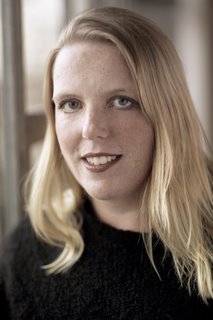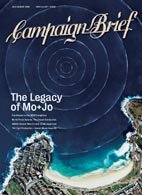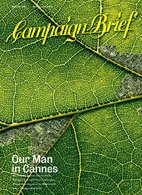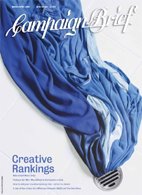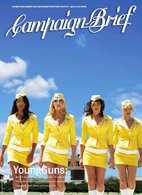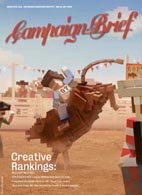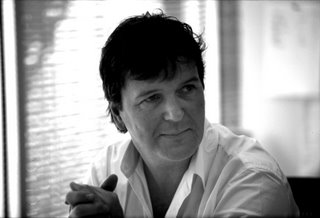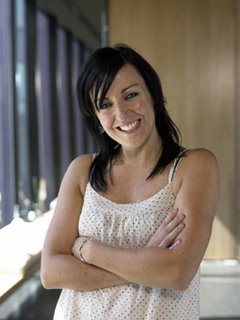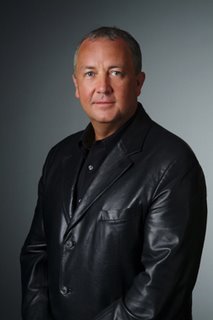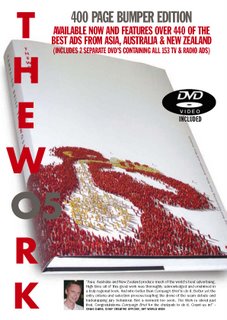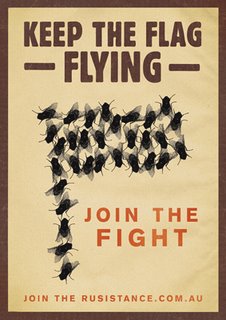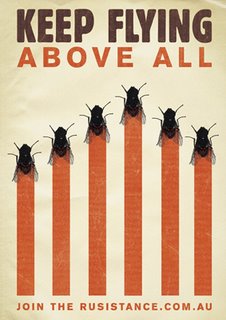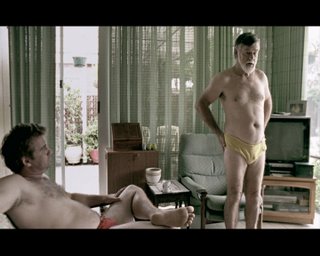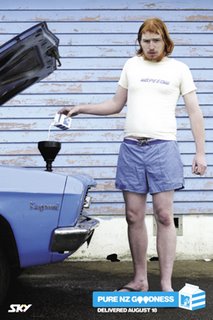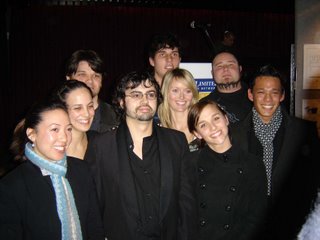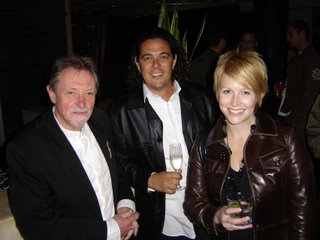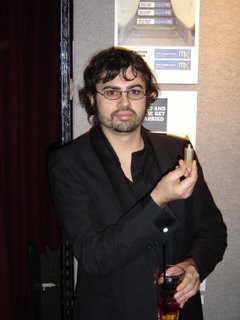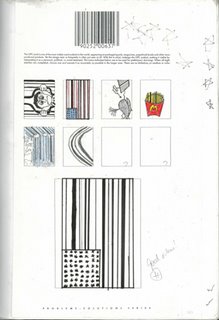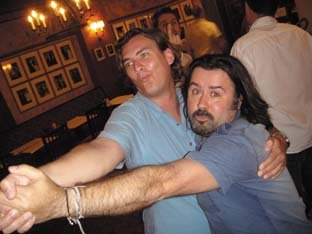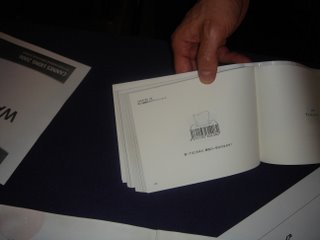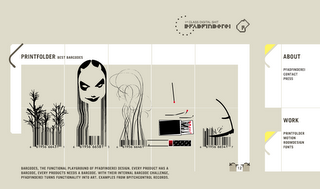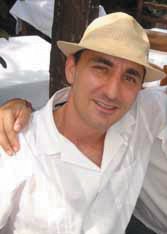
This year's Cannes Jury President, Australian expat David Droga, who's won more Lions than he can count with TV and print ads for agencies such as Publicis and Saatchi & Saatchi, is becoming increasingly known for his nontraditional endeavors. His 3-month-old Publicis-backed venture, Droga5 in New York, is currently working on a project for General Electric — and it will be anything but traditional. Droga and his team are collaborating with architects Philippe Starck and William McDonough, who specialize in sustainable design, to create what one GE executive describes as "a showcase for GE at the Olympic Games in Beijing," he says. "We're trying to build a legacy for GE in China."
The details of the project are still very much under wraps, but the concept is unusual enough to warrant the attention of Murderball co-director Henry Alex Rubin, who is filming the process for a future documentary.
As much as Droga talks about expanding beyond advertising, he stresses that his ad skills are still at the core of his business. "It's one avenue," he says. "Our industry from a strategic and creative side can impact business far greater than just the marketing side. We're ideas people."
Droga named his shop after the tags his mother used to sew inside his clothes when he went to boarding school, marking his order in a family of five brothers and two sisters.
Droga5, he says, is a "work in progress." He admits he doesn't have the business model entirely figured out yet, but so far, a handful of clients have signed up for "the experiment" with him. In addition to GE, which had worked with Droga in his global Publicis role, the shop's briskly growing client roster includes Marc Ecko Enterprises, Magnum Photos and PBS Kids.
The company, say both Droga and partner Duncan Marshall, is also close to finalizing relationships with a youth beverage brand and an automotive company. Plus, several new hires are in the works, including a publishing world celeb who will join the company as a partner, and creative additions such as Aussie expat Ben Nott, from TBWA\Chiat\Day, LA who starts next month as a creative director, and an undisclosed creative director from Wieden + Kennedy.
"Almost everything we're involved in right now is different and a challenge," says Marshall, a former executive creative director of Publicis in New York. "It is about any aspect of brand communications that involves original creativity."
The Droga5 team, whose workforce is quickly inching up past a handful to what Marshall expects will be 40-plus by the end of the year, is applying its creative resources to everything from viral branding for Ecko to scriptwriting for PBS. Natasha Lance Rogoff, a former Sesame Street executive producer who is developing a children's show for PBS in South Carolina, met Droga earlier this year at the World Economic Summit at Davos, Switzerland, where he took part in a panel discussion titled "Beyond the 30-Second Brand."
Droga5 is working with Lance Rogoff on all aspects of Finky's Kitchen, which is an animated cooking show that teaches children about healthful nutrition. The finished pilot is expected by fall. "Their involvement is what I would call creative intelligence, just bringing good ideas to the table," says Lance Rogoff. "They're really good storytellers."
Each segment will be available on TV, the Internet and mobile devices, taking into account the way kids use digital media, she adds. The show will first launch in the U.S., with success possibly leading to global syndication. It is here where the relationship may turn from its current pro bono status to a money-making proposition.
"Droga5 has allowed me to dip into these relationships and experiment on how I want to work," Droga says, describing his client relationships. "With some clients, it's fee-based; some clients, it's a stake in the business; some clients, I'm doing it at no cost. I'm playing with different templates."
Droga emphasizes that he is not "walking away from advertising." At Cannes, Droga5 entered an Internet-based campaign for clothing designer and graffiti-rights advocate Marc Ecko — its first creative to reach the public — which took out the Cyber Grand Prix and one of only three Titanium finalists. The shop created what appeared to be clandestine footage of a graffiti artist tagging Air Force One. The clip was seeded on the Internet, and word spread quickly. The Pentagon publicly declared the defacement never happened.
"It's been amazing," says Droga of his first few months in business. Until now, he's been limited by industry restraints. He's building his company the way he wants to, striking partnerships with various companies for different ventures. For example, he's partnered with production company Smuggler, which produced the Air Force One film, on a branded entertainment and distribution firm. "It sounds messy, and maybe it is," he says. "But it is allowing us to play, which is all we really want."
